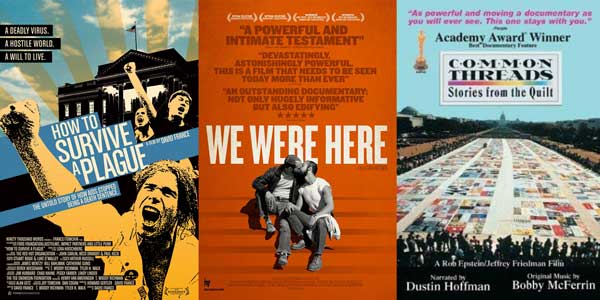Originally posted on www.biggaypictureshow.com
The HIV/AIDS crisis is something that everyone from all different walks of life has heard of. From television, book and films to magazine articles, everyone has a pretty good understanding of what happened during the 1980s.
For gay people especially, the crisis itself is now deeply rooted into our consciousness, whether we were there during the 80s or not. We’ve heard about the people who died, those who fought for funding to try and find a cure and/or proper treatment, and everyone else in between who struggled long and hard to help people who have been diagnosed with the virus, as well as the families of the people who lost their lives due to it.
It’s even deeply rooted into our minds when it comes to sex, as we all now know the importance of safe sex and what it could mean if that one time we weren’t safe, we became unlucky.
But for us Brits a lot of the information we get is from our American counterparts and about what happened over there during the 1980s. For example, in 2011 the documentary We Were Here looked at the AIDS crisis in San Francisco and interviewed a number of people who were there and experienced what happened.
By doing so it became the first documentary to take a deep look at what happened and the impact it had on the people living in San Francisco and how they responded to it. Today How To Survive A Plague opens in select US theatres, which looks at the crisis and the early days of the activist groups ACT UP (AIDS Coalition To Unleash Power) and TAG (Treatment Action Group). Those two looks at AIDS in America join the likes of the Oscar winning Common Threads: Stories From The Quilt.
However there has never been a decent-scale, feature documentary (that I know of, at least) that has taken a deep look at the crisis when it hit the UK. After all, HIV/AIDS has significantly impacted on a number of people over here and it has continued to do so since the 1980s.
We’ve all seen and heard about the safe sex advertising campaigns complete with icebergs, headstones and a deeply eerie narration from John Hurt, so we know it was just as bad over here. But do we know anything further than this campaign?
AIDS is still a problem now, with HIV infection rates remaining quite high and rising over recent years. It is definitely still an issue and we need to see and hear more about what actually happened to people living in the UK who were affected by HIV/AIDS during the early days of the disease, whether it was their friends, family or themselves that were affected by it, and whether it was slightly different or worse here than what people felt in other areas of the world. It is slightly ridiculous that for many British people, their knowledge of the AIDS crisis in the US is far greater than on what happened in the UK. Documentaries like these aren’t just about remembering our history, but also potent reminders of a disease that may not be the absolute killer it once was, but which we still need to be vigilant about.
Considering the success of the film We Were Here and the positive reaction it received, it would be interesting and helpful to see the effect a UK version had, told from a viewpoint that’s different from what we’ve already heard from over the pond.

